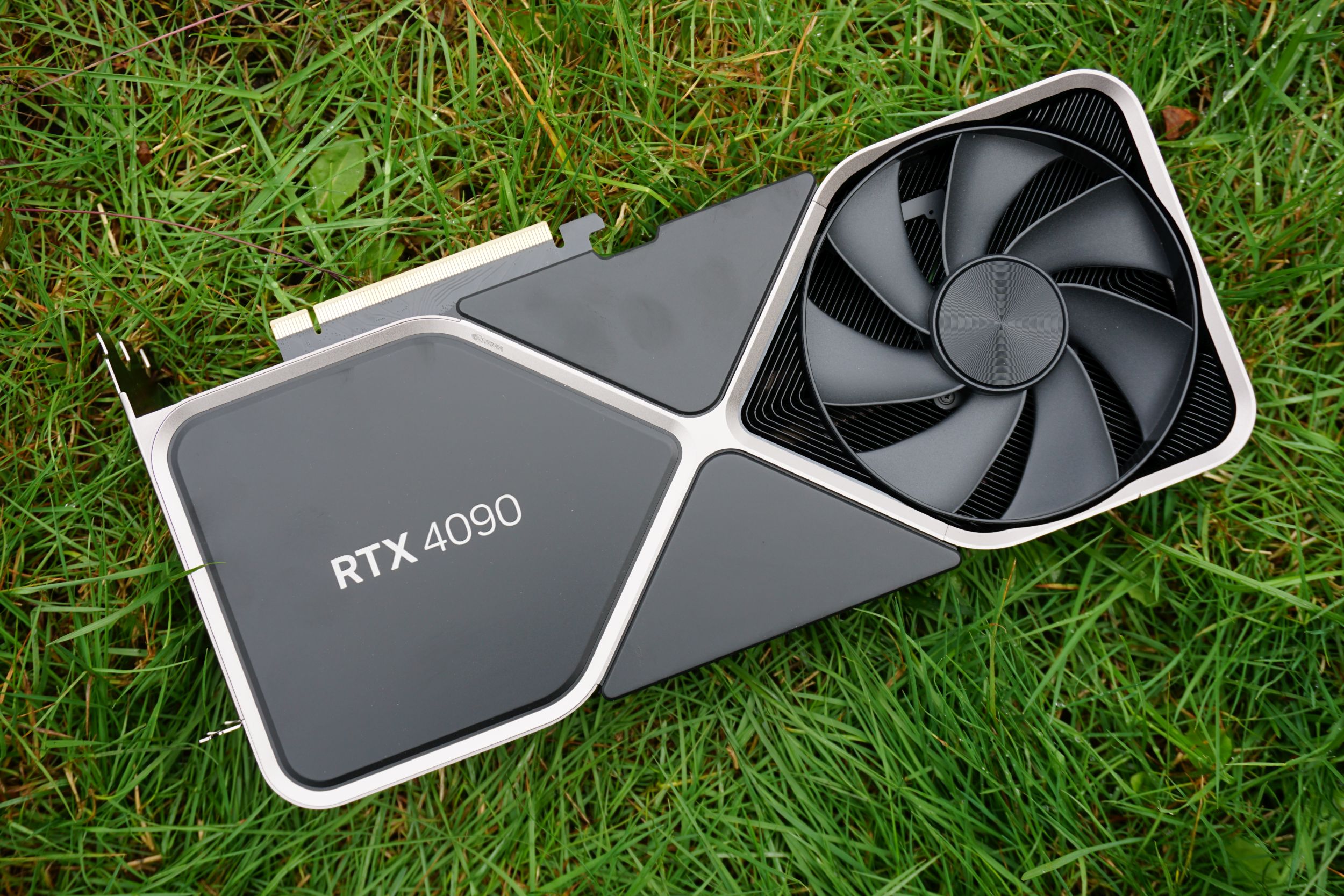Nvidia’s biggest competition often comes from—wait for it—Nvidia itself! It’s only natural that the newest, most powerful two options from Team Green pique the interests of gamers across the realm.
Sure, the GeForce RTX 4090 and RTX 4080 share the same Ada Lovelace DNA, DLSS 3, and even the chunky cooler size. If we dig deeper, however, the two GPUs are more different than you might think.
We’ll go over what you need to know if you’re comparing these graphical powerhouses, including price, availability, and performance. Whichever route you take, we’re sure you’re going to be seeing some of the highest (and prettiest!) frames ever.
Nvidia RTX 4090 vs. RTX 4080: Price and availability
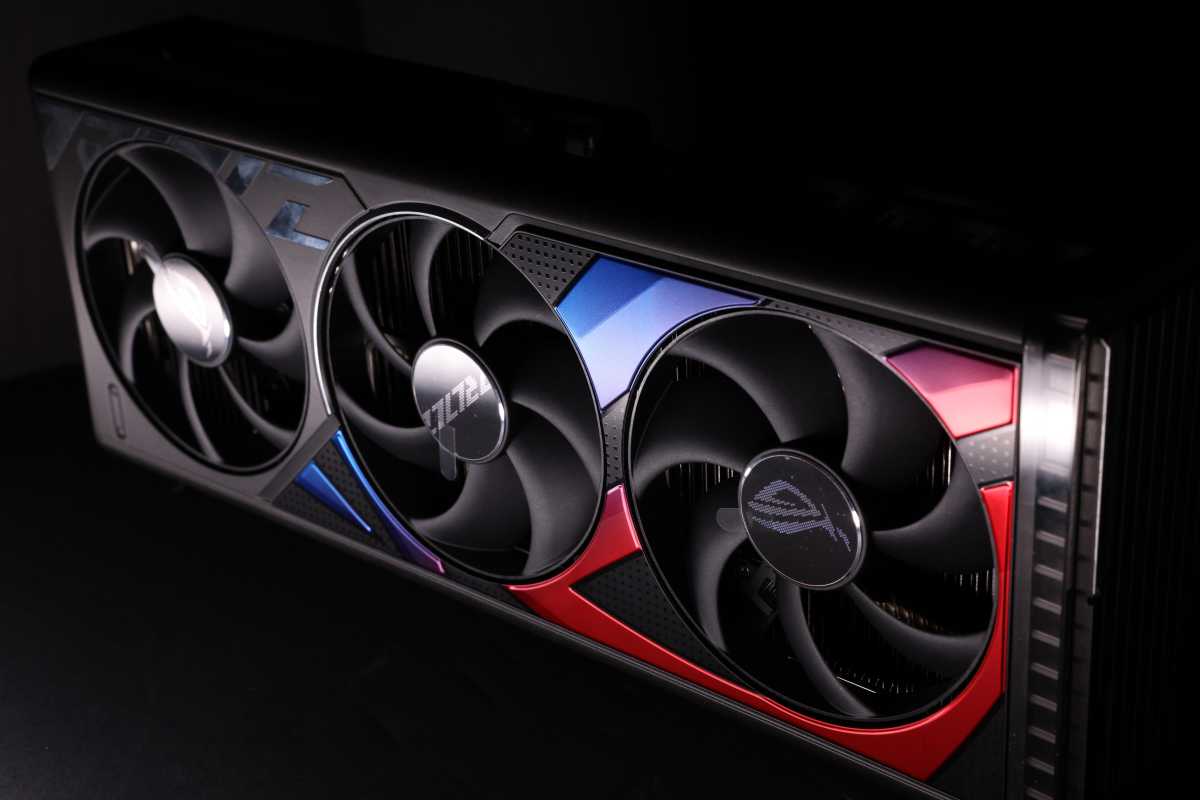
The big and beautiful RTX 4090.
Thiago Trevisan
While the GeForce RTX 4090’s MSRP of $1,599 is $400 more than the $1,199 RTX 4080 on paper, the real world tells us a different story. Here’s the kicker: GPU availability is much improved in 2022, but it’s still a serious issue for the RTX 4090.
The RTX 4090 has been perpetually sold out since its launch, a familiar scenario to anyone who tried to buy a GPU in 2021. Thus, its street price is often higher on the secondary market. It’s the most expensive GPU out now, but it also sold out the fastest—Nvidia has its cake and is eating it too!
The RTX 4080, on the other hand, has been shipped in less volume, but it’s more available, ironically. This is because it presents tremendously poor value for the performance you’re getting, as PCWorld executive editor Brad Chacos pointed out in his GeForce RTX 4080 summary. (Nvidia asking for $500 over the RTX 3080’s MSRP is a bit much to stomach!)
Thus, the RTX 4090 loses on availability specifically because it wins out on price-to-performance. Yes, even at $1,599. That’s the weird 2022 GPU universe we’ve landed in! To be fair, it does pack a serious punch that no other GPU can top currently, by a wide margin.
Nvidia RTX 4090 vs. RTX 4080: Performance
The GeForce RTX 4090 is brutally, futuristically powerful. Ray tracing, content creation, whatever you throw at it—it chews up. No-compromises high refresh-rate 4K gaming allows it to put us truly on the next plane of performance.
It’s a tough act to follow, and the RTX 4080 has an uphill battle. Starting with its 16GB of VRAM versus the 4090’s 24GB of VRAM, the specs tell a lot of the story. In practice, most gamers will do just fine with 16GB of VRAM, especially since it’s still the very fast GDDR6X variety like the RTX 4090 has. Content creators, though, could make better use of 24GB of VRAM, with one’s use case being the determining factor when it comes to memory capacity.
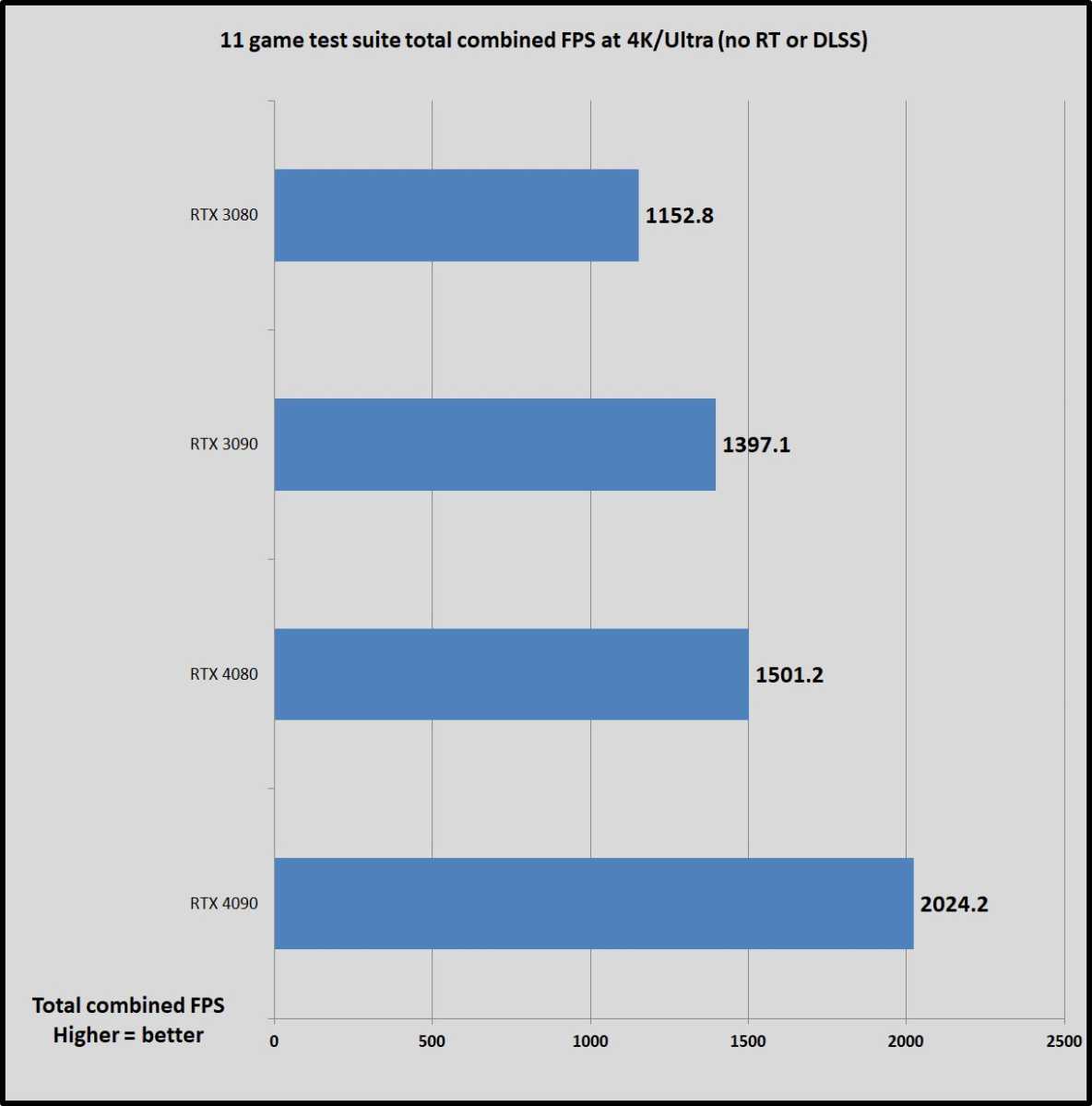
Combined FPS at 4K/Ultra for Nvidia GPUs.
Brad Chacos
The synopsis presented in Brad Chacos’s review of the RTX 4080 shows how big of an averaged-out lead the RTX 4090 has in 4K rasterized performance. Now all the “Price to Performance” talk starts to make sense in favor of the RTX 4090!
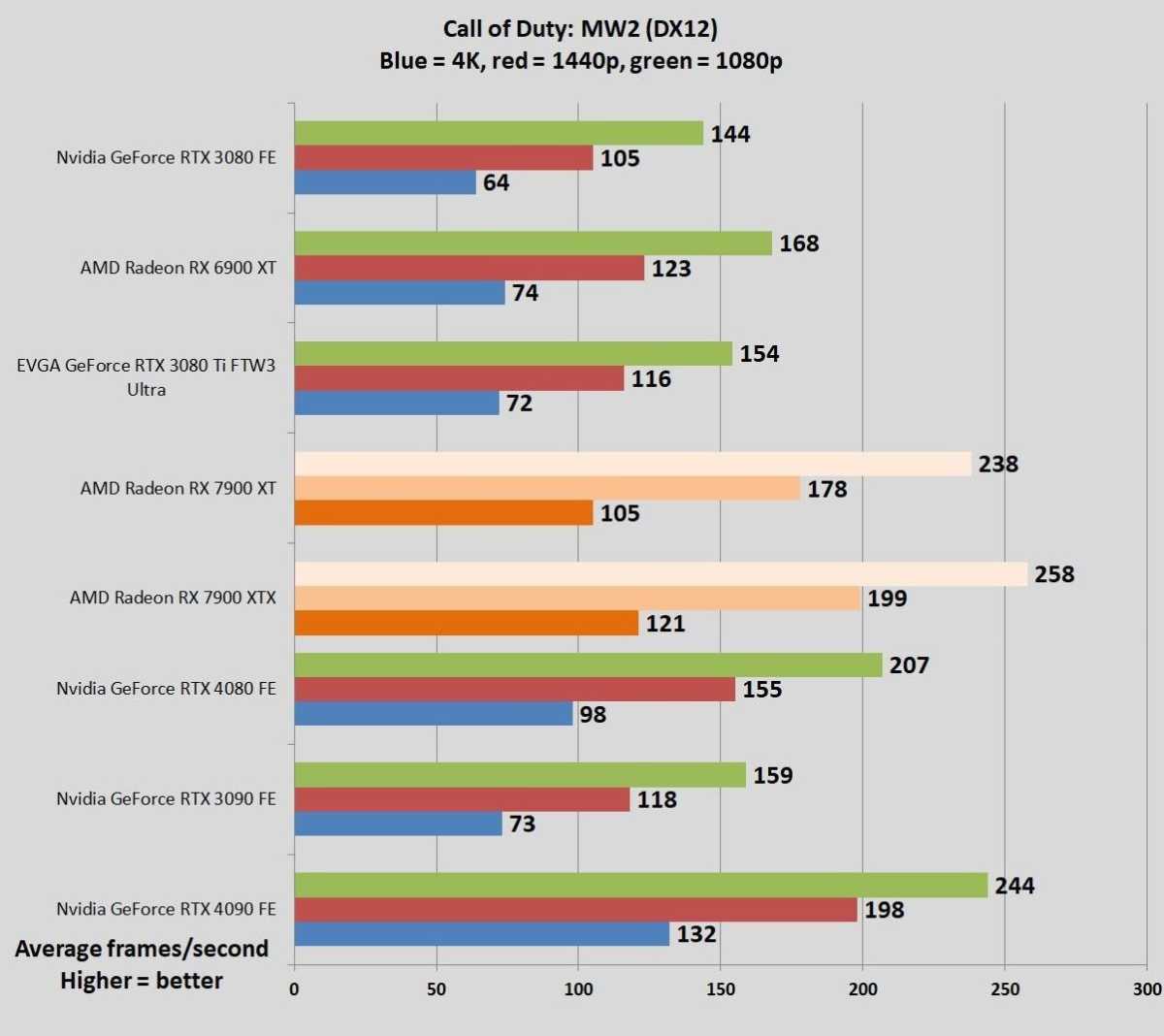
Brad Chacos
Let’s look at some specific examples, starting with the newest Call of Duty: Modern Warfare 2. The RTX 4090 has a significant lead at all resolutions, even 4K—by a whopping 34fps! If you’re gaming on a 4K 144Hz monitor, the RTX 4090 will come closest to taking advantage of it. Truth be told, however, 98fps on the RTX 4080 is still impressive and you’re not likely to notice the difference in most practical situations.
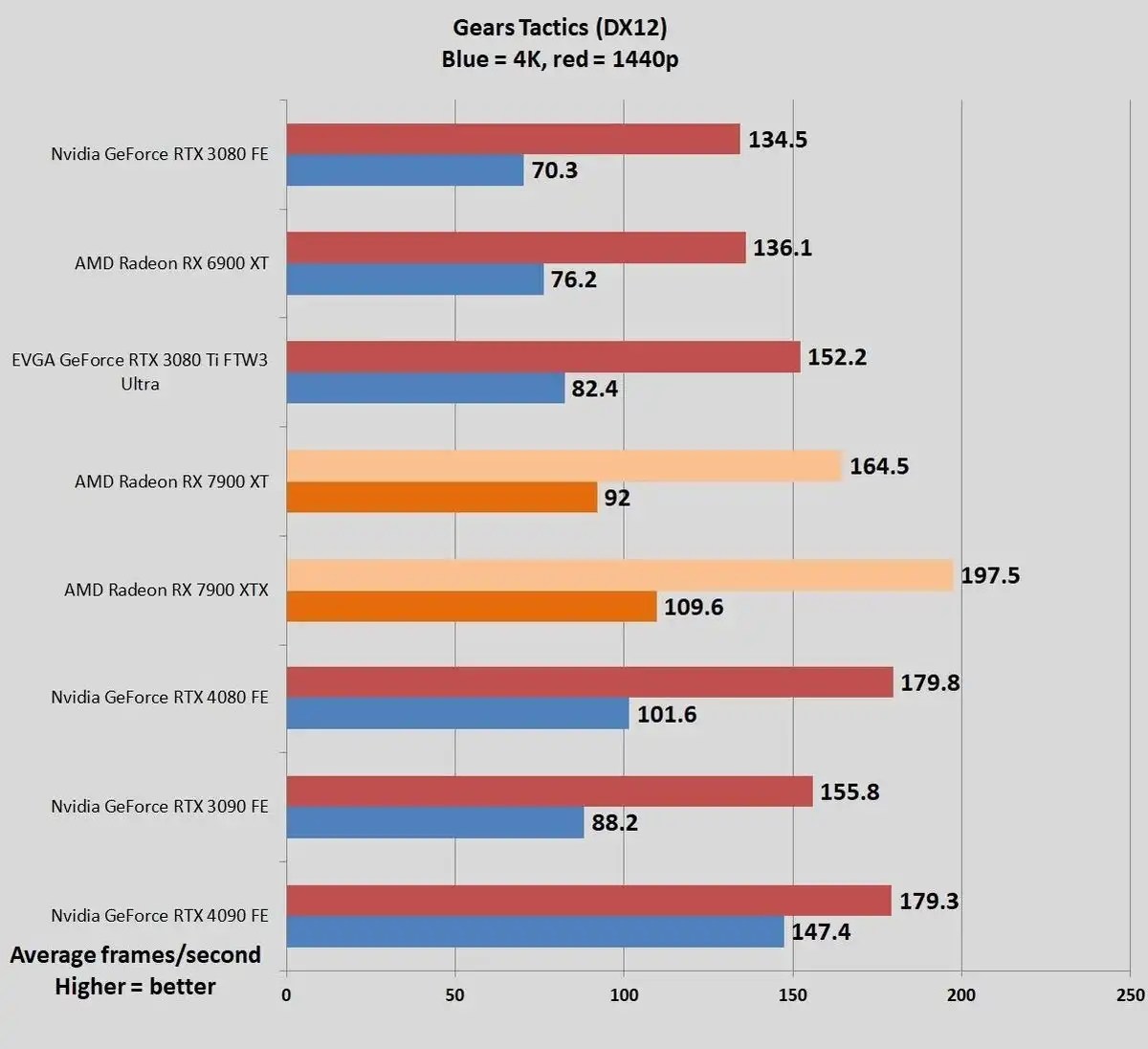
Brad Chacos
Looking at Gears Tactics, we find a potential problem with the RTX 4090: CPU bottlenecks. Past GPUs, even high-end ones, only used to encounter significant CPU bottlenecking issues at 1080p resolution, and rarely at 1440p. Here, we see the RTX 4080 and RTX 4090 with similar 1440p frame rates due to the CPU’s raw might becoming an issue. While 4K typically focuses heavily on GPU only, the RTX 4090 pushes so hard that the CPU can become a problem! In Gears, while the 4090 breezes past the 4080, we found it CPU-bound seven percent of the time even at lofty 4K resolution.
What’s one to do? Well, if you’re opting for the RTX 4090, you should be playing at 4K or at least very high-refresh 1440p at a minimum. If the latter, you’ll need a top-of-the-line, ultra-fast gaming CPU like the Intel Core i9-13900K, AMD Ryzen 9 7950X, or Ryzen 7 5800X3D to circumvent potential performance bottlenecks. The GeForce RTX 4080 can still have these issues in some cases at 1440p, but they’re much less noticeable.
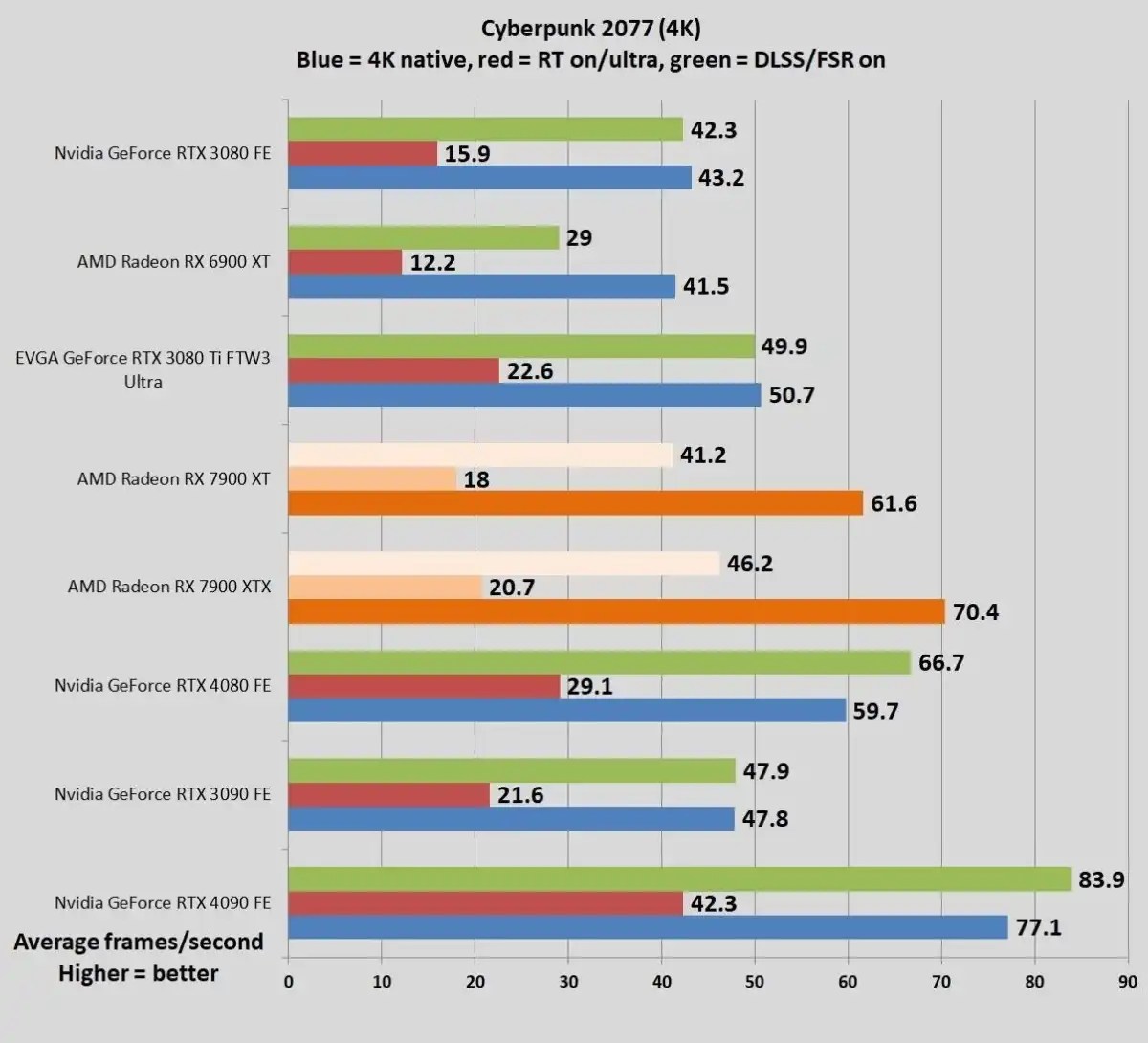
Brad Chacos
One of the biggest draws to RTX 40-series performance will be in Nvidia’s DLSS flavors, primarily DLSS 3 and its killer Frame Generation feature. While not every game supports this, the ones that do, such as Flight Simulator 2020, have great uplifts in performance. The RTX 4080 and RTX 4090 both have very powerful hardware built in to do this, but the RTX 4090 has a big spec advantage that gives it the outright lead when pushed hard.
Why is DLSS important? Ray tracing is a big reason—which traditionally gives GPUs a performance penalty. With DLSS, you can have both awesome visuals and higher frames. (The stuff dreams are made of!)
Looking at Cyberpunk 2077, we can go from 42.3 frames at 4K with ray tracing, to a whopping 83.9 with DLSS on the RTX 4090—and that’s not even with DLSS 3 Frame Gen on, which sent performance skyrocketing to 138fps in our testing. The RTX 4080 brings its 29.1fps to 47.9fps. Sure, it’s under 60fps, but it’s still playable compared to under 30fps without DLSS. (It’s worth noting our tests also set ray tracing settings to ultra, and reducing those to High can improve performance greatly.)
There’s no doubt that here the RTX 4090 is very far ahead with ray tracing over the RTX 4080, partly thanks to its hardware advantage. 83fps compared to 47fps is a big difference that you can certainly feel, putting the RTX 4090 truly in a class of its own.
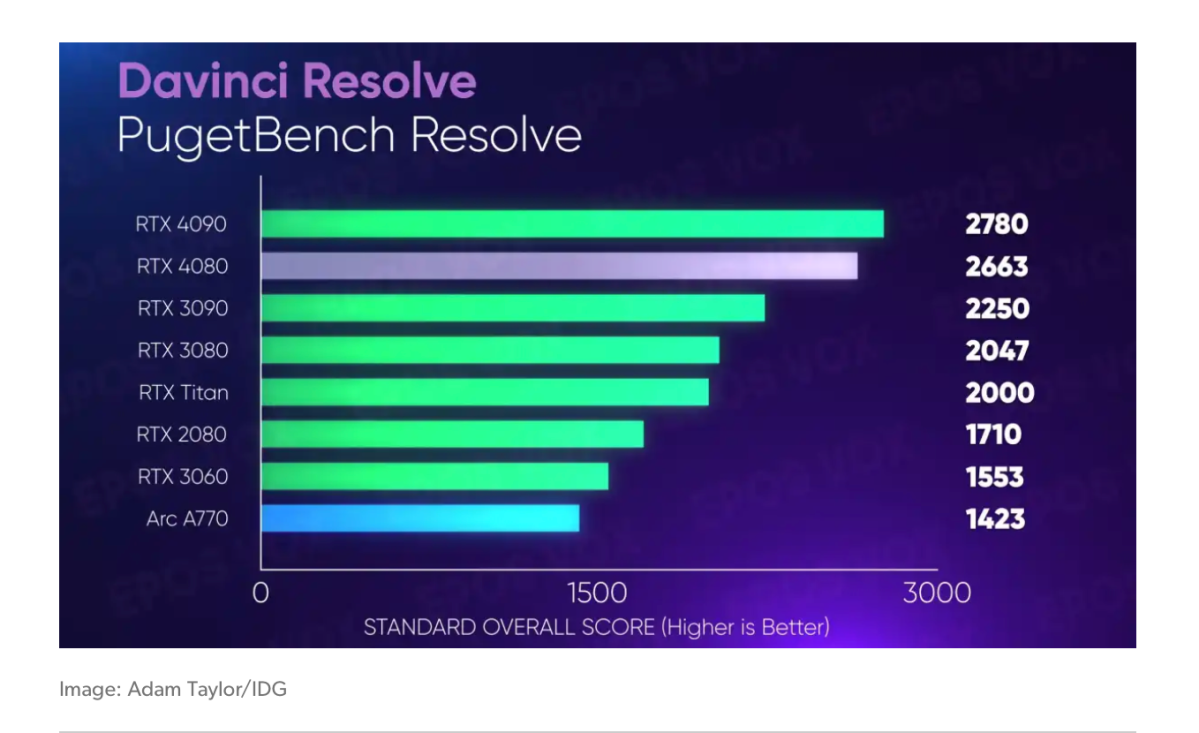
RTX 4090 vs. 4080 scores in the PugentBench Resolve bechmark test.
Adam Taylor
In content creation both the RTX 4080 and RTX 4090 prove to be very powerful. There may be a slightly different “price-to-performance” mindset if you’re a content creator, since the RTX 4080 can be excellent even when compared to the RTX 4090 depending on your use case. In gaming, however, the RTX 4090 still takes the cake by a much wider margin—especially if you need its blazing-fast 24GB of GDDR6X memory for high-resolution video exports.
Nvidia RTX 4090 vs. RTX 4080: Power and other things to know
When you think of power-efficient GPUs, the last thing that pops into your mind is a four-slot RTX 4090, right? Well, what if I told you it has the same 450W TDP as the RTX 3090 Ti, but with oodles more performance? Likewise, the RTX 4080 has a TDP of 320W but is considerably more powerful than its predecessors. More performance, same power. If that’s not efficiency, I don’t know what is!
Of course, we need to mention the RTX 4090 12VHPWR adapter and its well-publicized melt down issues. To sum it up, don’t worry about it. There was a very low incidence rate, and the cause came down to mostly user error in connecting the adapter. (Make sure you push it all the way in!) There are other things to keep in mind, such as not bending the cable too much—which can be a problem on the very thick RTX 4080 and RTX 4090 in many PC cases. Since they often share similar coolers, they’re about the same in terms of case requirements, too.
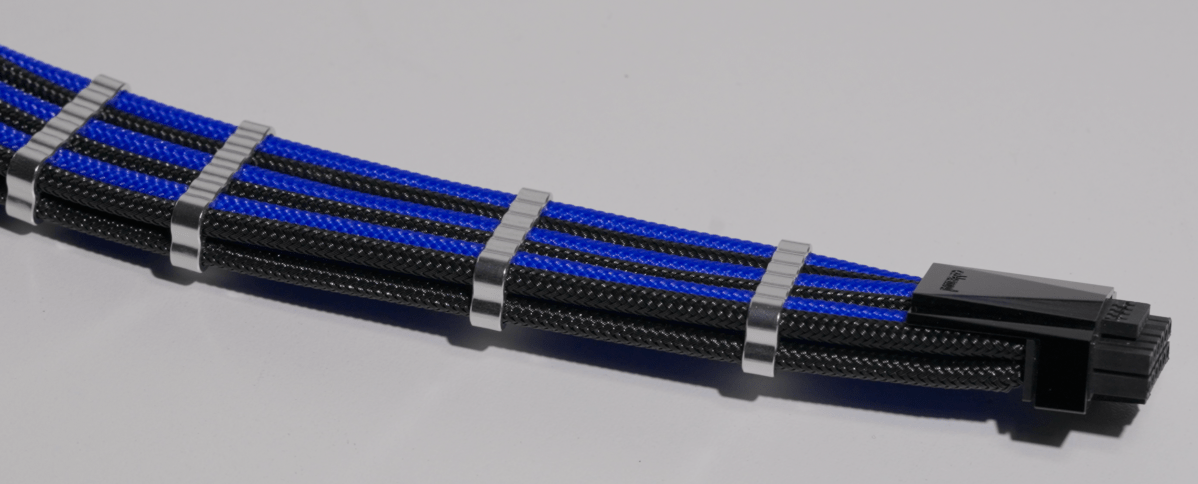
Thiago Trevisan
The good thing about these oversized monsters is that both typically have excellent thermals due to the coolers, and quiet operation. Coil whine can still be an issue on both GPUS, however, if you’re unlucky.
Nvidia RTX 4090 vs RTX 4080: The verdict
In the end, it’s hard to say, “Just get the $1,599 GPU!” like it’s a casual decision. We can talk about how and why we got here—but it’s the reality of the situation.
If you have a big GPU budget that can cover a GeForce RTX 4090, and if you can find one, it’s the obvious choice. The performance is simply unmatched. It will open up new gaming experiences for you that have never before been possible. 4K 144Hz? Ray tracing? We’re here!
The RTX 4080, price aside, is not a bad GPU. It has great performance, thermals, and next-gen DLSS 3 with the second-best ray tracing performance. Not too shabby. It’s also not particularly power hungry either. Unfortunately, we can’t put “price aside” permanently, and its wildly expensive for what you’re getting as far as gaming goes. Content creators may find the RTX 4080 fits them well on their use case, however, so their “math” may be slightly more positive than for just gaming purposes. For gaming, the RTX 4090 is it, though!
The RTX 4080’s atrocious price makes the RTX 4090 truly seem like a much better option, with the least compromises. Hats off to you, GeForce RTX 4090, our winner!



